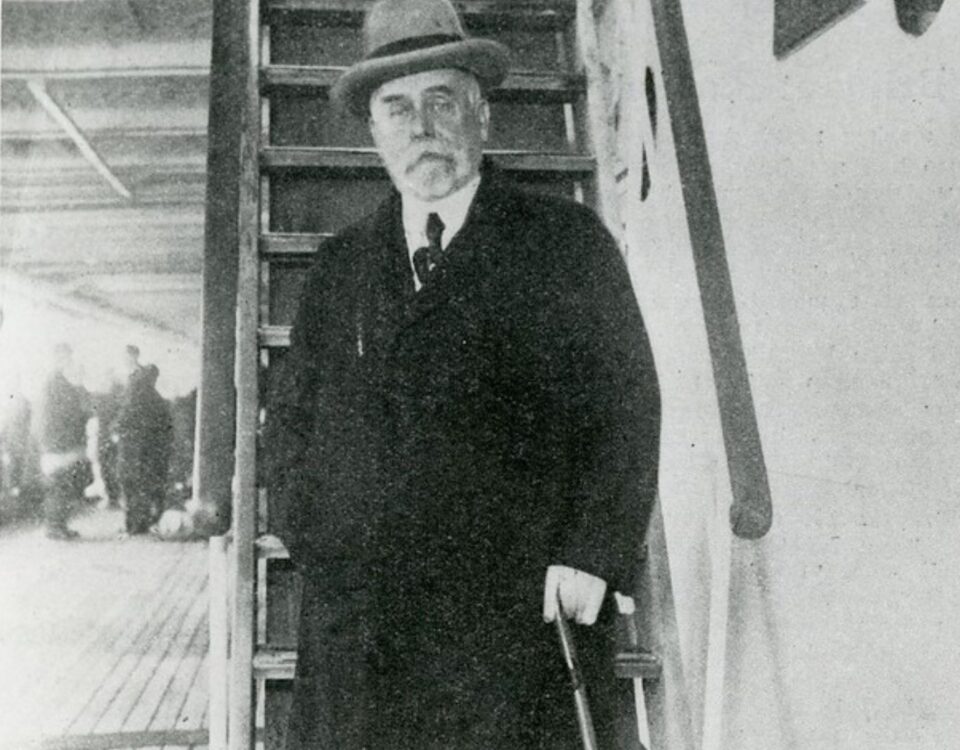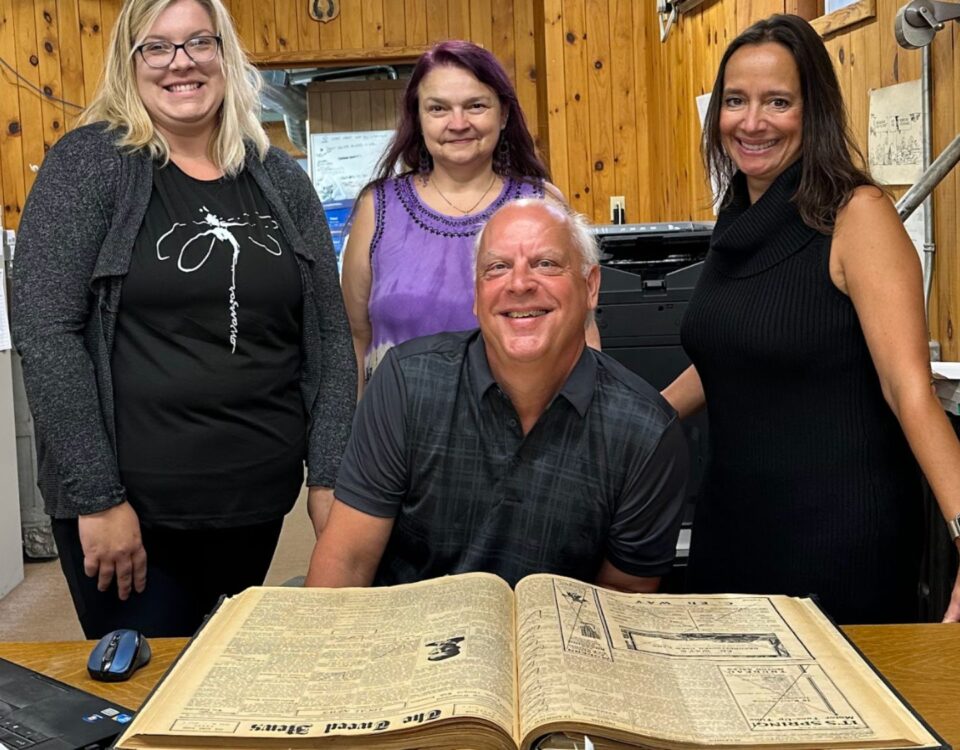
The Quinte region has been home to several illustrious writers – some born here while others chose Quinte as their home. Among them are authors like Susanna Moodie, Farley Mowatt, Peter C. Newman and Francis Otani and poets like Al Purdy and Wallace Havelock Robb. These are familiar names but there is also an accomplished author who is not widely known locally but whose career and extensive achievements are nothing short of amazing. He is Sir Gilbert Parker.
His beginnings were very average, born in Camden Township, Addington County in 1862, graduated from the University of Toronto and obtained a teaching certificate which took him to schools at Marsh Hill, near Frankford, and then to Bayside. This was followed by an assignment in 1882 at the School for the Deaf in Belleville, where his family was living. Parker found that teaching was not his forte and entered the ministry of the Church of England, becoming assistant rector at St. George’s church in Trenton. Concurrently, he was appointed lecturer in elocution at Queens University in Kingston.
Parker had his sights set much higher than the local scene. In his heart he wanted to be a writer and for that he knew he would need to broaden his worldly experience and move in the higher levels of Victorian society both to influence possible publishers but also to attract an audience. With all of this in mind, he set off in 1886 to tour the world. He crossed the United States by train, stopping frequently to experience the local cultures. Then on to Hawaii where he was able to arrange a meeting with the native king. He continued to Australia where he achieved success as a lecturer and obtained a writer’s position with the Sydney Morning Herald. In this capacity he traveled widely in Australia and, most importantly, visited the islands of the South Pacific. Again, he soaked up the local cultures and social life which would be material his future writings
In 1890 Gilbert Parker arrived in London and began writing and establishing himself in higher society. He found that writers were achieving success with stories of the rough characters of the American frontier. He saw an opportunity by drawing on Canada’s stories – the great north, the N.W.M.P., the French Canadians and the pioneers in the West. But he needed more personal experience so he returned to Canada, first stopping to visit his family in Belleville. He then toured the West gathering concepts for his future books. Parker came back to Belleville and gave a lecture at the Opera House on his experiences and then returned to England.
He began writing, drawing on his knowledge of Canada and the colourful characters of the new land and his books drew high praise. He wrote melodramatic stories of romantic fiction with colourful characters and exotic locations, frequently placed in Quebec and Canada’s West. He was on his way to fame and fortune. Through the 1890s, Parker wrote constantly and became a best-selling novelist traveling frequently to the U.S. and Canada promoting his books and growing his reputation.
In 1900 Parker decided to leap into politics and ran successfully for the Conservatives in the riding of Gravesend. He continued to serve in Parliament for 18 years and was an active member. During the First World War, Parker received a very important assignment to be Britain’s propagandist in the United States to encourage their support of Britain. He set up a secret office to produce propaganda material and, using his celebrity status, he distributed this widely to influential Americans. He traveled across the U.S., made speeches and established personal relationships with American elites. In 1917 the U.S. entered the First World War and Parker’s work was complete.
Gilbert Parker was knighted by King Edward VII in 1902 for his service to Canadian literature and was created a baronet in 1915. He retired from Parliament in 1918 citing failing health and need for rest. But that did not stop him as he traveled to Canada for a conference in 1920, toured across the country and then went to Hollywood where three of his books were being made into movies. One of these, Behold My Wife, was the story of “an embittered aristocrat” who married a native woman, sent her away, saw the error of his ways and reunited in great happiness. This film showed at Belleville’s Griffin Opera House in March 1922.
Parker’s wife, Lady Amy Parker, a wealthy New York heiress, became seriously ill in 1925 and died in New York in September. She was ultimately interred in Belleville Cemetery. That same year, speaking at St. Thomas Church, Parker commented, “I will come back to this church ….when the time comes to sleep my best sleep under the sod of Canada.” In 1926, Parker again toured Canada and the U.S. and spent time in Belleville, staying at the Hotel Quinte. In failing health, he spent his later years in London and died there in 1932. At his request, Parker’s remains were returned to Belleville where dignitaries from across the country, including Prime Minister R.B. Bennett, assembled for a massive funeral. He was buried in Belleville Cemetery where his above-the-ground mausoleum is one of the most impressive in that cemetery.
In March 2017 the Community Archives of Belleville and Hastings County received an amazing offer of Sir Gilbert Parker’s personal papers. Apparently, they had remained in London with his niece, who ultimately shipped them to family members in Los Angeles. The family there contacted the Community Archives and offered the whole collection, 15 trunks and boxes, weighing 650lbs. to the Archives. This priceless collection of personal and political scrapbooks, literary manuscripts and papers along with the steel trunks is now permanently housed here in Belleville.
For more articles read the full magazine on Issuu


